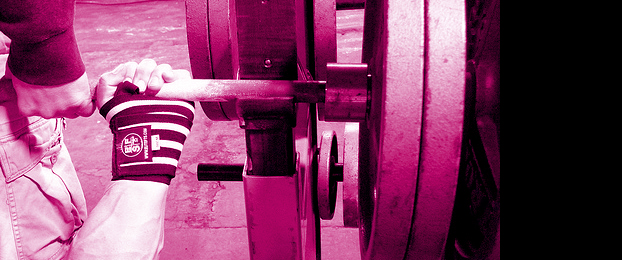
Strength and conditioning has a historical, hard nosed attitude toward training and change. Most strength coaches of the past have been football coaches who had been relatively strong in the gym and thus found themselves coaching in the gym for better or worse for their athletes.
Over the past four months, I was lucky enough to have an internship with Brijesh Patel, the head strength and conditioning coach at Quinnipiac University (QU). On the first day, I walked in and went through one of his warm ups. I didn’t like how he set up one of the stretches. After speaking with Brijesh for a moment about why I didn’t like the execution of the stretch, he tried it himself. To my surprise, he agreed that my way seemed to get a better stretch than the way he used, and on the fly, changed it that day while coaching his athletes. I immediately knew this internship wasn’t going to be anything like what I had expected.
Brijesh’s strength and conditioning program is more of a culture than a strength program. Every athlete is taught to be accountable for his or her actions in and out of the weight room. It isn’t uncommon to hear teammates yelling “watch your tempo” during the middle of lifts to ensure everyone is on pace. Trust and teambuilding is incorporated into every workout from simple things as individual warm ups pre-workout to making sure everyone makes a given time during conditioning drills. These qualities not only build camaraderie in the weight room, but they also transfer well to the playing field where teammates must be able to rely on one another.
Demanding perfection out of every set, rep, and exercise is a prerequisite at QU. Maximal intensity is always required during every aspect of training from cheering on teammates to post-workout stretching. Everything is done with a purpose. Some may think from reading this article that Brijesh is some crazy man who expects an absurd amount from his athletes. Well, he does expect a lot from his athletes. Excuses don’t make champions, and that is his job—to develop champions. He also takes it upon himself to educate his athletes that this is a lifestyle and that they should expect the most out of themselves in all facets of life. He teaches every individual about the reasons why they’re lifting a certain way or doing specific exercises and why they need to fuel their bodies a specific way to get the most out of it. These are skills that each person can take away and apply to all aspects of life.
Brijesh expects constant improvement from his athletes and from himself. If there is a way to develop stronger, faster, healthier athletes, it will find its way into a QU program. I’ve learned so much more over the past four months working with such an amazing coach, but the biggest lessons I’ve learned have more to do with people than training. Brijesh is truly an innovator in the industry and just as much of a life coach as a strength coach.
If I had to sum up what I’ve learned, I’d say, demand hard work, and strive for perfection. Intensity and passion can overcome anything, and you have to have some fun. Strength and conditioning is an essential part of every athlete’s development, but I can assure you, it isn’t just about the weights.








